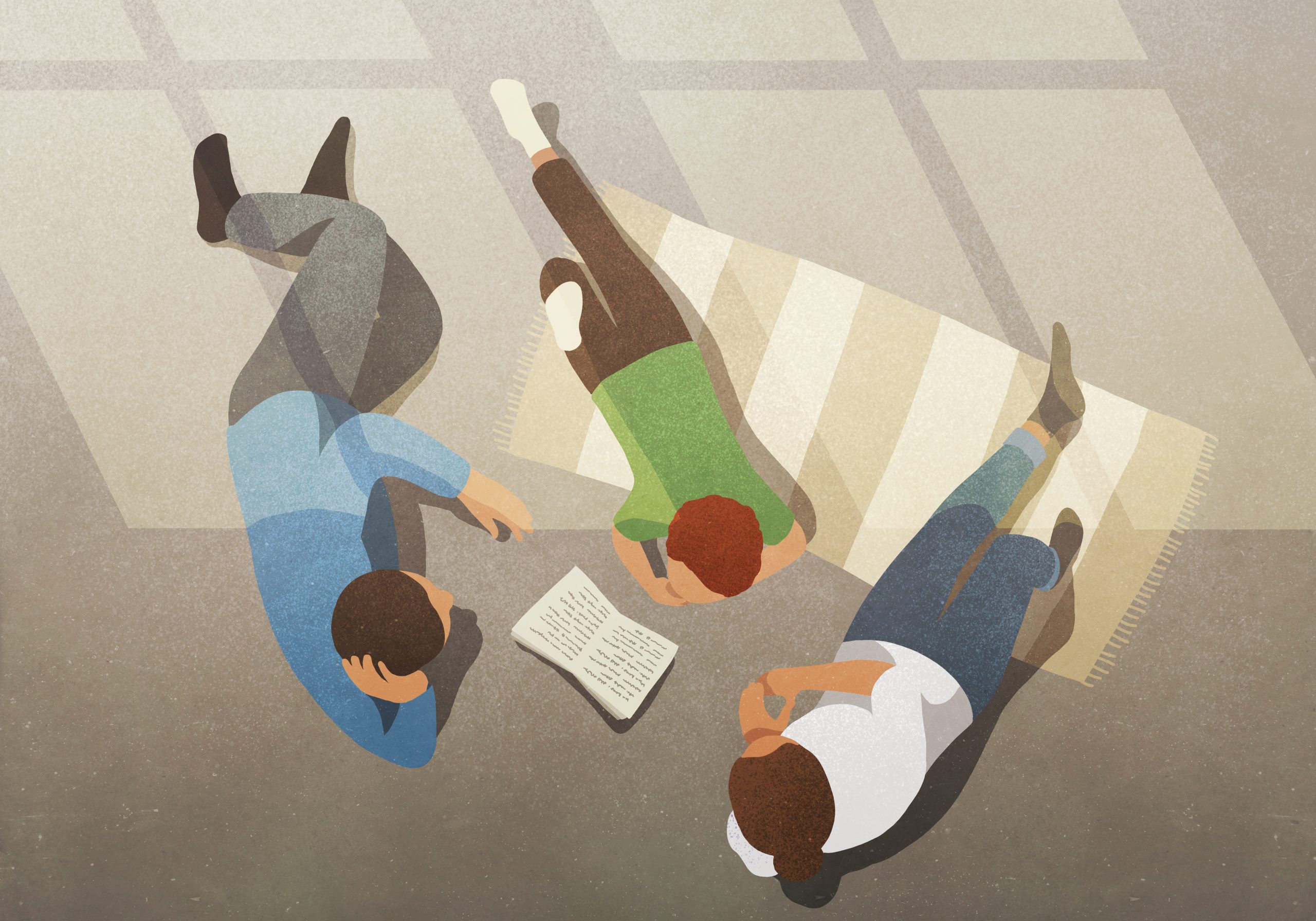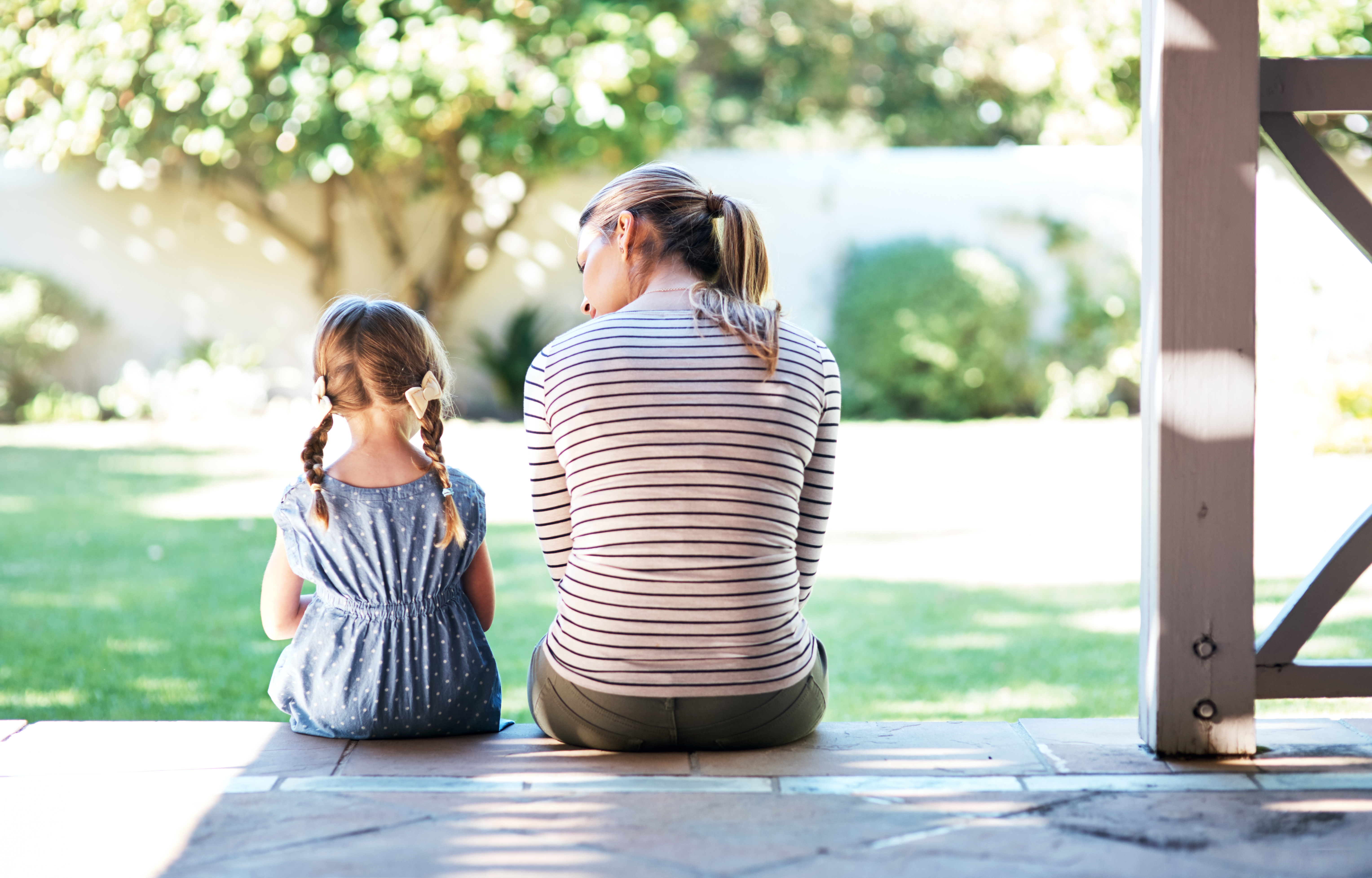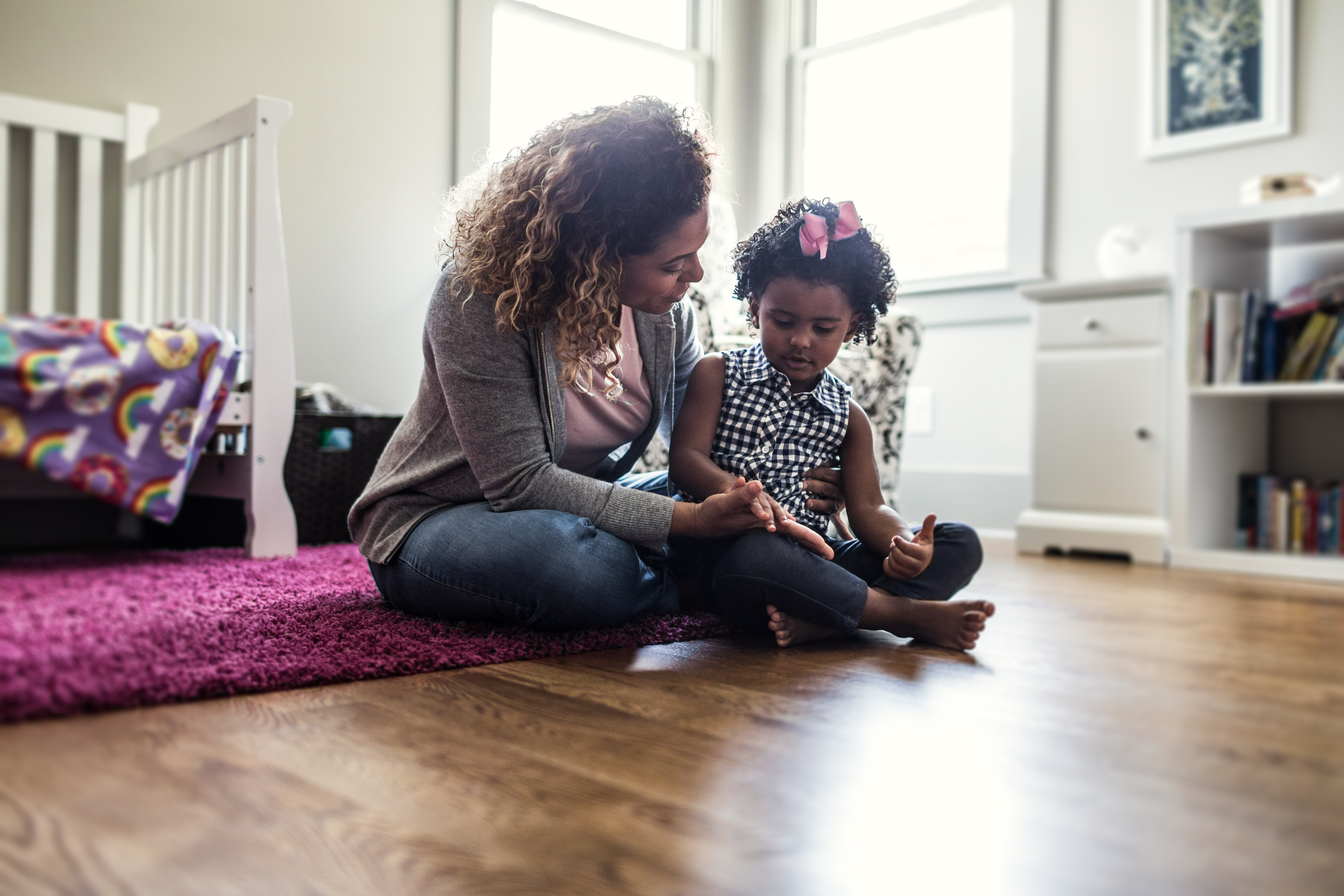
Talking to your child about racism can be a challenge. You might not know the right thing to say, when to say it or how to make them understand.
But it’s incredibly important, and always has been, to start talking to young children about racism and encourage them to be actively anti-racist from a young age. Especially as evidence shows children begin to notice racial differences from as young as six months old, which isn’t innately linked to any positive or negative qualities about different groups of people.
How children then view those of a different race is a learned thought process from parents, significant people in their life and what they see in the mass media.
Over the last few weeks, we have all seen exactly why it is so important to begin talking to children about racism. The death of George Floyd, and many others in the US, has sent shockwaves around the world and perhaps for the first time, white and non-Black people of colour have to confront their own racial bias.
While there is no one way or quick fix for talking to your children about racism, it’s a process that is worth the time and effort for them to grow up as kinder, fairer and better citizens of the world. What works for one family might not work for another when it comes to having the discussion, but it’s vital that all parents have it, no matter their background or experience with race.
How to start talking to children about racism
Have an actual discussion
For some families, there is no option not to talk about racism because it will affect their own children from an early age. Others only tackle the idea when children bring it to them, however research suggests that it may be too late by this point.
Dr. Erin Winkler, an associate professor at the University of Wisconsin-Milwaukee in America, spoke to ParentToolkit about why this might be. She said, “Not talking about race causes children to come to a lot of harmful, problematic and factually inaccurate conclusions.
Parenting advice, hot topics, best buys and family finance tips delivered straight to your inbox.
“If we teach children that racism is simply a thing of the past, and that today we are all equal – and all equally capable of achieving the 'American Dream' – children 'may mistakenly assume that the unequal racial patterns they see are earned or justified'.”
As any parent will know, children make assumptions based on their own knowledge and fill in the gaps the best they can – often with incorrect results.
The best way to start this conversation is to acknowledge that racism exists - some people are treated differently because of the colour of their skin, which is wrong. And, this is systemic in all parts of society, from education to the work place, industries, medicine and law enforcement. For very young children, it might be best to start with a conversation about how wonderful it is that there are so many different types of people in the world, using basic language they understand.
Read books with diverse characters and authors
For many child, books are often how they learn some of the most basic things about the world – anything from the alphabet to animals in nature. So talking to your children about racism can also be done through books too.
This Instagram post helpfully breaks down the books that you can introduce to your children at different ages to teach them about diversity. Books such as these will teach them from a very young age that there are people in the world that look different to them.
Diverse kids books on Instagram also has a whole feed of recommendations, so you can choose the right one for your children. We also reported that the book, 'It's Ok to be Different' has spiked in sales this week.
Speak up when family members or friends make jokes or comments
Most adults will recognise when a family member or friend has said something racist or a joke that’s rooted in harmful stereotypes. It’s not only important to make them know that this isn’t okay for their own education, but also for your children’s.
Children copy actions and learn from those around them. By calling out racially pointed remarks and jokes, you’re letting them know it’s not okay for them to make them too, and that it’s okay to call out anyone who does.
If you find that they are absorbing this type of information, discuss with them exactly why it’s not okay to say these things rather than just telling them not to say it.
Learn about the history of racism together

It’s even harder to talk to children about racism if you personally don’t know the history of where it came from. This will also help children to see how racism still exists in the world today.
Take the time, both away and with your children to educate yourself about Black history and the founding role that black people have had on societies around the world.
But also learn about and discuss white people’s involvement in it. Don’t shy away from important conversations about topics like slavery and why it happened – but make sure to educate yourself first on these topics to ensure you’re sharing the right information.
You can educate yourself through books, such as Why I’m No Longer Talking to White People About Race which focuses on racism in the UK, or through documentaries and series. The Netflix film, The 13th, is among one of the most viewed programmes on the streaming service this week - made for adults (not children), the film explores the history of racial inequality in the United States.
Talk often

Ensuring children continue to be anti-racist and accepting of all, is not a one-off lesson. It’s a commitment that every parent should make to their children when they are young, and then continue support them in their own education when they are old enough.
On talking about race and discrimination to children, the American Psychological Association advises that the discussion should be open and on-going. As with other important subjects, parents often avoid talking about discrimination because it’s personally uncomfortable – keep talking anyway, as these conversations will get easier over time.
They also suggest using age-appropriate language and not giving kids too much information at once, as the discussion will become more detailed as they get older.
And importantly, learn to respond to children’s questions as they come up naturally. Talking often about race is the best way to do this, as you can help your children feel that their questions are welcome. By not doing this, you could accidentally end up implying that discussing racism is taboo and inappropriate.
When should you start talking to your children about racism?
As Kevin Swick, a professor of early childhood education at the University of South Carolina says in the book Beyond the Golden Rule, “If they attend a school that lacks diversity, if they watch TV shows that paint stereotypical pictures of certain groups, if they visit websites that use slurs and putdowns to describe people — all of these influences inform children’s responses to other people.”
So, it’s important to start actually verbally talking to your children about race as soon as when they can understand you. Some believe this is around the age of four or five years old, which is according to research also when expressions of racial prejudice often peak.
However as we have said, there is much you can do to educate your child about race before this age by incorporating diverse experiences into their lives. So when it’s time to have a verbal discussion, it’s not the first time that you are introducing the subject of diversity and discrimination.
How to talk to children if they have experienced racism

In her book, Beyond the Golden Rule: A Parent’s Guide to Preventing and Responding to Prejudice, Dana Williams insightfully explores how parents can respond to their children experiencing racism.
She suggests the following:
- Be frank: "Explain to kids the very real issues of racism and prejudice. While racism and prejudice aren’t factors in every incident, they certainly are factors in many. When your child has faced such an incident, don’t be afraid to name it."
- Keep your cool: "No one likes the idea of her child being exposed to an incident of racism or prejudice, and often, such incidents anger us greatly. But when parents are able to remain calm, children feel more comfortable turning to us when these incidents arise."
- Admit your own issues: "We all struggle with prejudice, bias and stereotypes. Be honest with kids about your own issues and how you work to overcome them. Not everyone who struggles with bias or prejudice is “bad.” Knowing this can help kids grow to recognize their own biases and encourage them to search for common ground with others."
- Talk regularly: "Don’t wait for an incident of racism or bias to occur before discussing such issues with kids. Look critically at stereotypes and race issues in the media and in everyday life. Incorporate discussions about such issues in day-to-day conversations."
Talking about your own experiences of racism
Dr. Nia Heard-Garris is a paediatrician and chair of the minority health, equity and inclusion committee of the American Academy of Pediatrics (AAP). She spoke to CNN about what parents can do to help their children at this time.
"A parent's first step is to take care of themselves, their mental health, their emotional health. Put their oxygen mask on first before they put the oxygen mask on their child,”
She adds that while this doesn’t mean letting go of anger or anxiety, being in a calm state will help you to “parse out what’s important to pass onto your child do that you’re not oversharing information that may further traumatize them or make them feel insecure or unsafe.”
Whether you share your own personal experiences of racism if you are a black parent or person of colour, as with everything you share with your child, it’s completely down to you. No one can tell you what experiences you or shouldn't be sharing with your child on this topic.
How can schools help teach children about racism?
In the last few weeks, alumni and current students of secondary schools, colleges and universities across the country have called for a more inclusive and diverse education to be delivered in their schools.
This comes now as new research was conducted by Dr Remi Joseph-Salisbury and published by Runnymeade Trust suggesting that teachers should "improve racial literacy" so they can help in teaching children to be anti-racist.
The research, conducted on secondary schools, called for more teachers from Black and Minority Ethnic (BME) backgrounds and for all teachers to be educated on their own understanding of racism, so they can effectively educate their students in the classroom.
As the report says, "By their own admission, many teachers are ill prepared to teach in ways that promote anti-racism, and this can include BME teachers. Racial literacy therefore needs to be placed at the centre of teachers’ role and teacher training. It is important that all teachers take responsibility for teaching in ways that promote anti-racism."
Along with changes to the teacher workforce, the report calls for a transformation of the school curriculum, suggesting that it fails to "reflect the diversity of contemporary society" and doesn't allow for engagement with Britain's colonial legacy. It also advises that "clearer anti-racism policies are needed to institutionally embed a culture of anti-racism in schools" and calls for a review to ensure that BME students are not "systematically disadvantaged".
Therefore by improving teachers' understanding racism and effectively changing the curriculum to include, for the first time in many cases, more diverse education, schools can help teach children about racism.
This is by no means an exhaustive guide to talking to children about racism. But by simply starting with these actionable steps, you can open the dialogue between you and your child and encourage them to have healthier attitudes in life.
Trusted, informative, and empathetic – Goodto is the ultimate online destination for mums. Established in 2007, our 15-year-strong archive of content includes more than 18,000 articles, 1,500 how-to videos, and 7,000 recipes.

